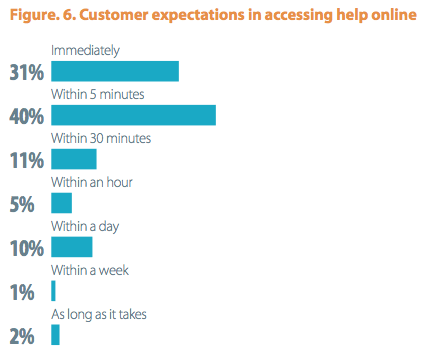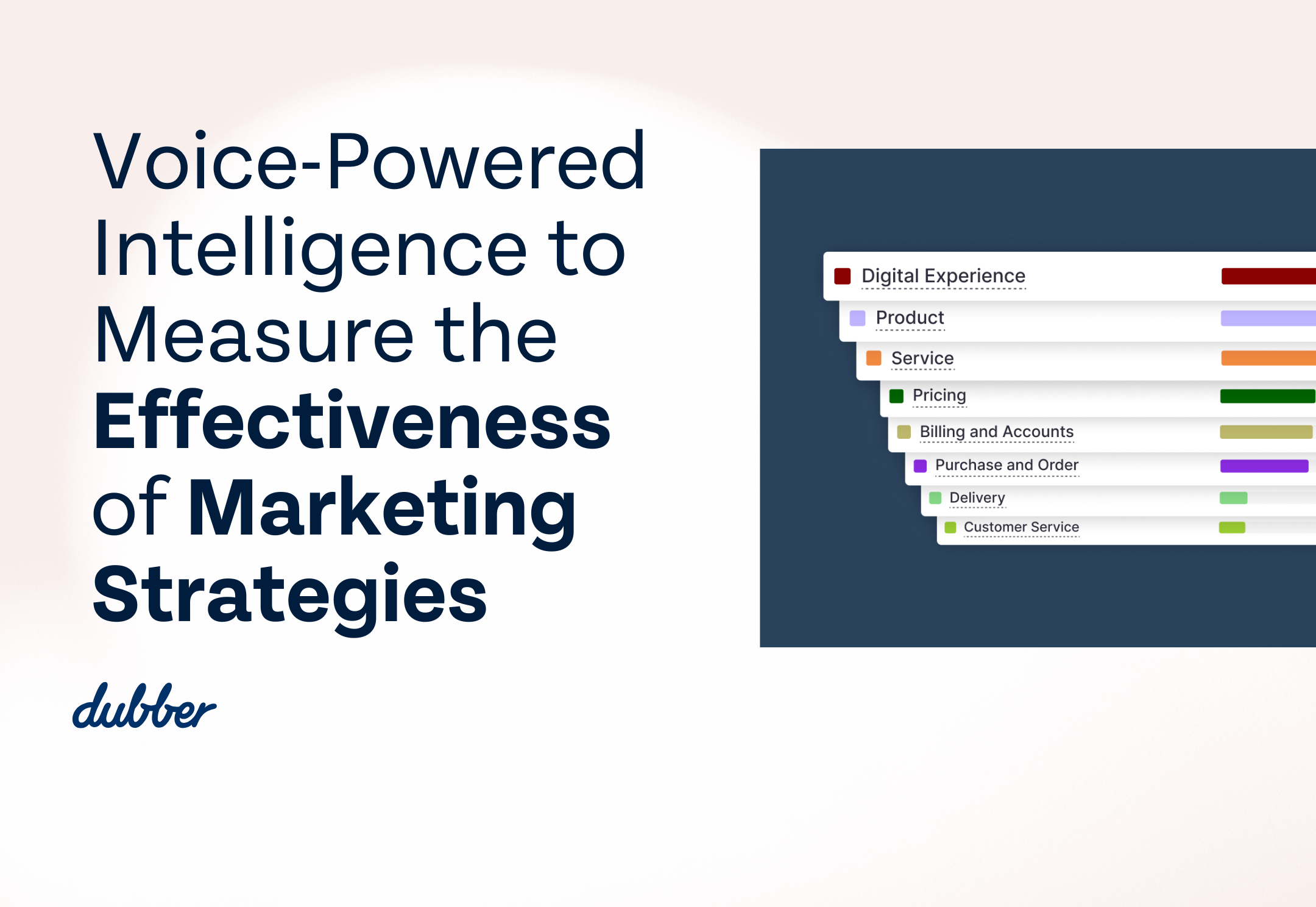

Why Phone Calls Are More Valuable Than Ever
With online interaction dominating the modern world, a phone call feels special. Phone calls are reserved for the important stuff – for the decision that needs to be made, for the question that we want answering urgently – we pick up the phone when we just need to get things done.
Listening in
We can see this idea reflected in how customers contact companies when they need assistance: research by eConsultancy found that a phone call was the most commonly chosen method of communication at 61%. When looking for online assistance, 71% of customers wanted help within 5 minutes or less (see chart below). The majority of customers looking to buy also choose to call a company rather than contacting them online. Both Google and xAd, two of the leading digital advertising networks, found that a click-to-call option on ads was highly successful – with 51-62% of users choosing this option.
Source: eConsultancy
On top of the immediacy offered by a phone call, there is science behind why verbal communication is so effective: hearing is the fastest sense, with sound taking only 10 milliseconds to reach the brain compared to 13-80 milliseconds for sight, according to researchers at MIT,
With customers 11 times more likely to complain over the phone than via the internet, according to research from Arizona State University, these phone calls are a valuable opportunity to turn a negative experience into an improved relationship. Customer interactions that take place over the phone create a much better opportunity for a meaningful connection. Your customer is right there, willing to speak to you, and you can answer any questions they might have immediately. Up-selling and cross-selling also comes much more naturally over the phone. Only a face-to-face conversation could possibly be better.
Reading between the lines
Written communication can be open to interpretation. It’s the very reason for the enduring magic of books, but it can result in misunderstandings in the corporate world of hurried emails. Without the indicators of tone and meaning, simple sentences can be misconstrued to drastic effect. When clarification is needed over the phone, you can get an answer immediately. Complex technical queries are always best discussed with a call as the instant feedback can alleviate confusion quickly, whereas a series of emails might only further complicate things.
With a phone call, you can hear the emotion of the speaker’s voice – their intonation and volume of speech can often say more than their words. Customer service agents can tell if a customer isn’t fully happy with the resolution of their complaint, while sales agents can get a better sense of how to entice a new client.
Measuring the success of phone calls
The importance of phone calls is clear, and because of this customer service agents who excel at building relationships with customers are more valuable than ever. However, contact centre workers can feel like they lack objectives and that their work can’t be measured. In order to provide customer service agents with reports on their success, a call intelligence solution such as Dubber’s Zoe can be utilised to conduct sentiment analysis of calls and measure the customer’s experience throughout the conversation. Not only does this give workers valuable feedback on their work and progress, their supervisors receive an insight into their interactions with customers and can use this information to improve their work practices and train new members of staff effectively.
The benefits of email and instant messaging are the paper trail that they leave behind. With a call recording solution, such as Dubber, that provides transcripts of your conversations, you can have all the benefits of phone calls with the reassurance that you can track and record your communications.


